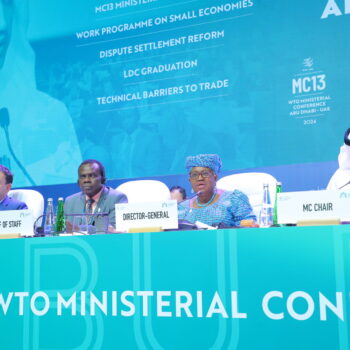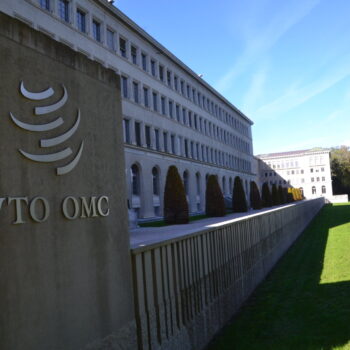Energy security is often understood as a matter of physical disruption. In response, policymakers tend to react by developing security strategies that aim at diversifying supply routes. This is reflected in the EU’s new Energy Union strategy, published on 25 February by the European Commission.
But is simple diversification of supply routes really a measure of energy security? The picture is less clear once you look at the alternatives. The reliability of trading partners is more important than the number of import routes.
The Commission’s strategy on energy security focuses on diversification of gas supply via “Algeria and Turkey; Azerbaijan and Turkmenistan; the Middle East; Africa and other potential suppliers” as well as on increasing access routes to gas imports through new Liquefied Natural Gas terminals. None are without problems.
The biggest headline initiative on gas in the Energy Union paper is the Southern Gas Corridor, which aims to deliver gas to Europe from the Caspian region by 2020. Yet stability concerns are rising. Azerbaijan is facing international condemnation on its human rights abuses as well as growing domestic discontent. Turkmenistan, one of the most repressive states in the world, faces a growing threat from the Taliban along its 744km-long border with Afghanistan. A more assertive Russian policy in the Caspian has also sparked fears of a new geopolitical clash over the region’s gas resources.
The Middle East and North Africa countries, especially Algeria, have been singled out by the Commission as candidates to provide alternative supplies to Russian gas. But availability of gas for export in future is far from certain. Algeria’s gas production has been declining since 2005, and a lack of investment combined with a 50% increase in domestic demand has led to falling exports over the last decade.
Current projections show that Algeria will consume everything it extracts by 2030, becoming a net energy importer soon after. Without a full-scale exploitation of its shale resources Algerian authorities will fail to meet their domestic and foreign obligations. However, it is highly uncertain whether existing resources will eventually become technically and economically viable.
Meanwhile tens of thousands Algerians are joining anti-fracking protests and marches across Algeria, marking the first large-scale protests for some time that could destabilise the country over the longer term together with the new wave of terrorism in the North Africa and Middle East region.
The new wave of terrorism, the most dangerous threat to regional security, also undermines prospects of future stability. Algeria, Libya, Tunisia and Mali were the countries most affected by terrorist attacks in 2013, highlighted by the events of January 2013 when 800 workers were held hostage and 11 Algerians and 37 foreigners were killed during the rescue operation.
The birth of ISIS, the most radical change to the political geography of the Middle East since the First World War, and the civil war raging in Western Libya have fundamentally called into question Europe’s ability to manage regional change peacefully.
Taken collectively, these challenges suggest that the current narrow focus on access to gas supplies in Europe’s energy foreign policy is a risky strategy, which ultimately may neither guarantee Europe’s energy security nor help stability in Europe’s neighbourhood. If diversification away from Russia is to succeed, it will need to focus on demand reduction and alternative technologies (including renewable sources) rather than simply counting the number of supply routes.
This article was first published by EurActiv.


